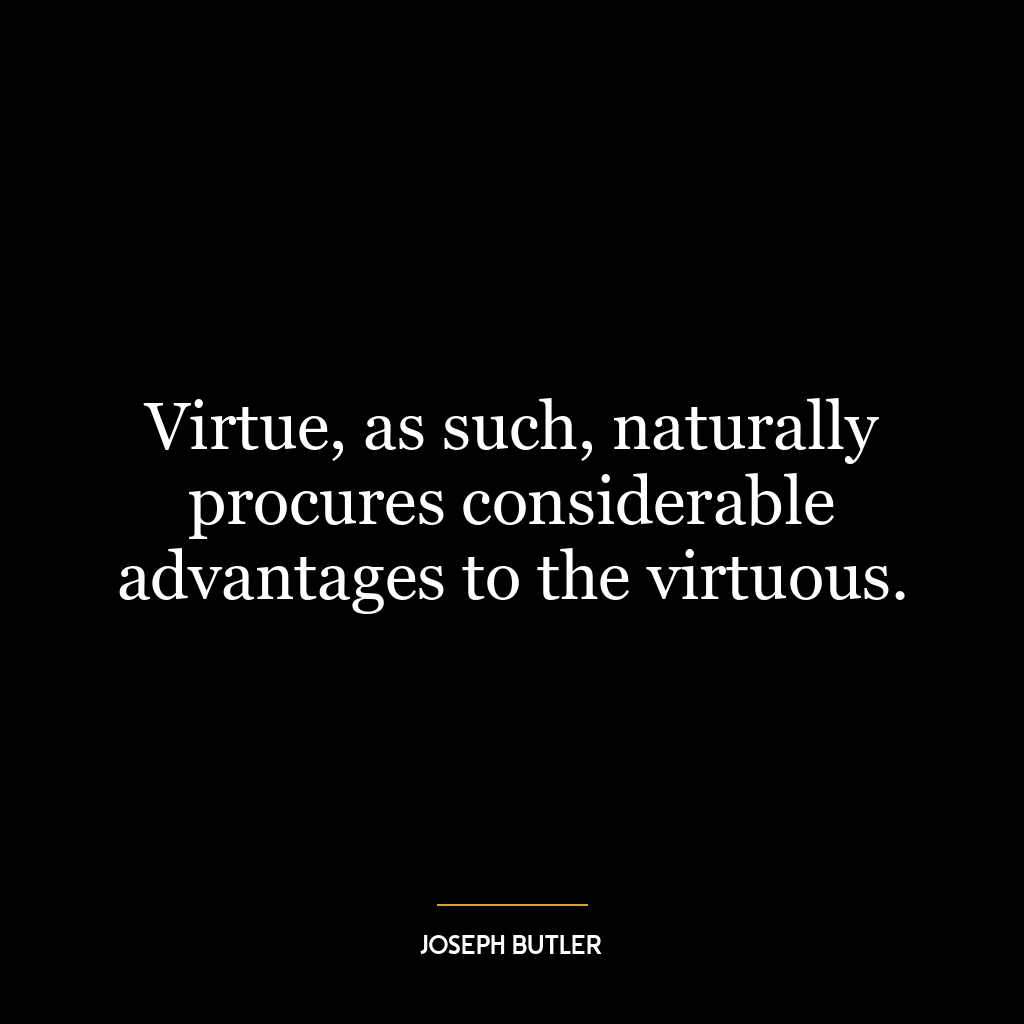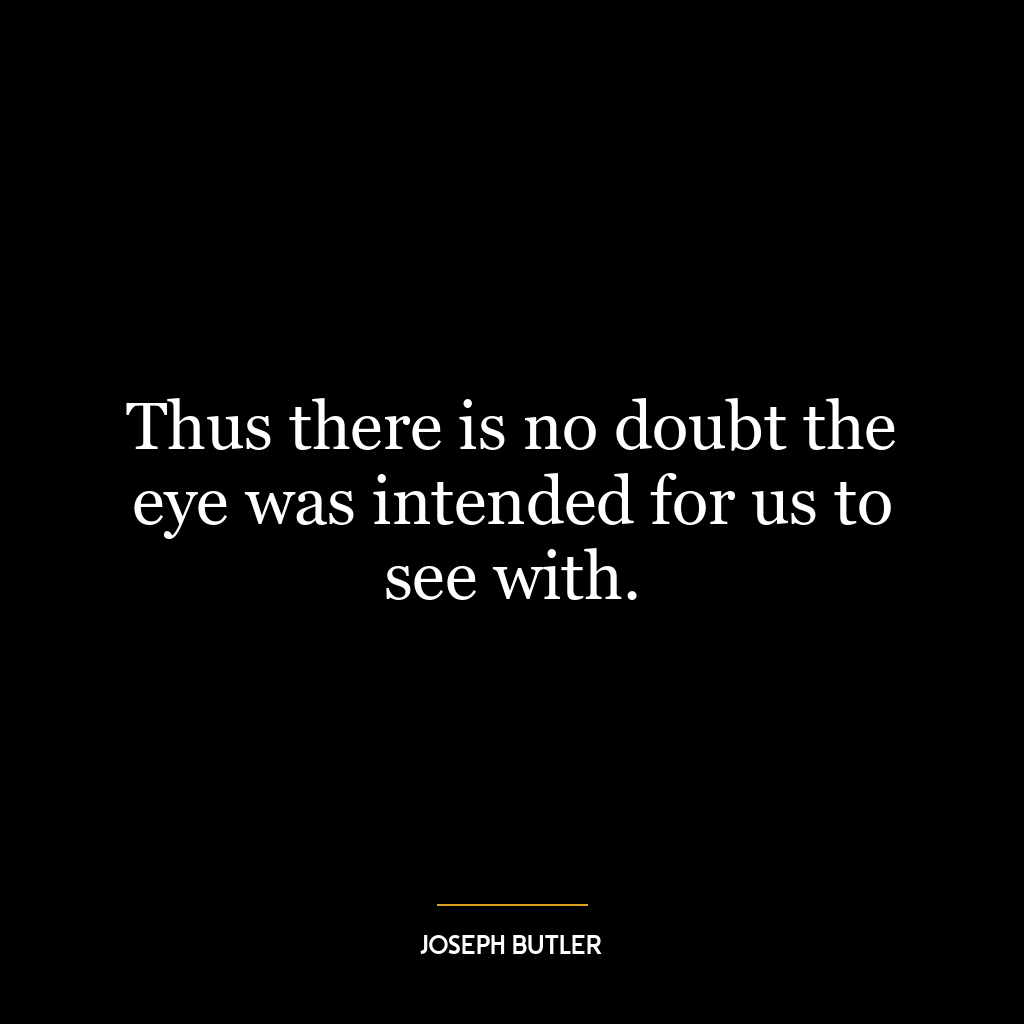Joseph Butler Quotes
- Clergyman
- England
- 1692
Joseph Butler (1692-1752) was an English bishop, theologian, and philosopher. He is best known for his book, Fifteen Sermons Preached at the Rolls Chapel (1726), which is considered a classic of Anglican theology. Butler is also remembered for his work on moral philosophy, particularly his critique…Read More
Joseph Butler (1692-1752) was an English bishop, theologian, and philosopher. He is best known for his book, Fifteen Sermons Preached at the Rolls Chapel (1726), which is considered a classic of Anglican theology. Butler is also remembered for his work on moral philosophy, particularly his critique of the utilitarianism of Jeremy Bentham. He argued that morality is based on a sense of duty, rather than on pleasure or utility. Butler’s other works include The Analogy of Religion, Natural and Revealed (1736) and The Sermons of Joseph Butler (1750). He is remembered as one of the most influential figures in the history of Anglican theology.Read Less
Joseph Butler (1692-1752) was an English bishop, theologian, and philosopher. He is best known for his book, Fifteen Sermons Preached at the Rolls Chapel (1726), which is considered a classic of Anglican theology. Butler is also remembered for his work on moral philosophy, particularly his critique of the utilitarianism of Jeremy Bentham. He argued that morality is based on a sense of duty, rather than on pleasure or utility. Butler’s other works include The Analogy of Religion, Natural and Revealed (1736) and The Sermons of Joseph Butler (1750). He is remembered as one of the most influential figures in the history of Anglican theology.
6 Interesting Joseph Butler Quotes
Joseph Butler Career Highlights
- Butler was born in Wantage, England, and received his education at Oriel College, Oxford. He was ordained as a priest in the Church of England in 1718 and served as a parish priest for several years before becoming the chaplain to the Bishop of Bristol in 1726.
- In 1736, Butler was appointed as the Bishop of Bristol, and in 1750, he was promoted to the position of Bishop of Durham, one of the most prestigious positions in the Church of England.
- Butler’s most famous work, “The Analogy of Religion, Natural and Revealed, to the Constitution and Course of Nature,” was published in 1736. This work was a response to the growing skepticism towards religion and aimed to show that Christianity was in line with reason and natural law.
- In addition to his work as a bishop and theologian, Butler was also a respected moral philosopher. His book “Fifteen Sermons Preached at the Rolls Chapel” (1726) is considered a classic in moral philosophy and has been praised by philosophers such as David Hume and Immanuel Kant.
- Butler’s influence extended beyond his own time, and his work has been studied and debated by philosophers, theologians, and scholars for centuries. He is still considered one of the most important figures in the history of moral philosophy and religious thought.
Key Contributions by Joseph Butler
- Butler’s most significant contribution was his defense of Christianity against the rising tide of skepticism and rationalism in the 18th century. His work, “The Analogy of Religion,” aimed to show that Christianity was not only compatible with reason but also necessary for a moral and just society.
- Butler’s moral philosophy was based on the concept of conscience, which he believed was the ultimate guide for moral decision-making. He argued that conscience was a natural faculty that was given to humans by God and that it should be trusted and followed.
- Butler also made significant contributions to the field of ethics, particularly in his rejection of the popular ethical theories of his time, such as utilitarianism and egoism. He believed that these theories were inadequate and that moral decisions should be based on a sense of duty and obligation.
- Butler’s work on the problem of evil, which he addressed in “The Analogy of Religion,” has been praised for its logical and persuasive arguments. He argued that the existence of evil in the world did not disprove the existence of a benevolent God, but rather showed that God’s ways were beyond human understanding.
What Sets Joseph Butler Apart
- Butler’s work was characterized by his ability to bridge the gap between reason and faith. He believed that reason and religion were not in conflict but rather complemented each other. This approach set him apart from many of his contemporaries who saw reason and religion as opposing forces.
- Butler’s writing style was also unique, as he used a combination of logical arguments and appeals to emotion to make his points. This made his work accessible to a wider audience and helped to spread his ideas beyond academic circles.
- Butler’s influence extended beyond the field of philosophy and theology. His work also had a significant impact on literature, particularly in the works of writers such as Samuel Taylor Coleridge and William Wordsworth, who were influenced by his ideas on conscience and moral decision-making.
Takeaways
- Joseph Butler’s work continues to be relevant and influential in the fields of moral philosophy and religious thought.
- His defense of Christianity against skepticism and his emphasis on the role of conscience in moral decision-making are still debated and studied by scholars today.
- Butler’s ability to bridge the gap between reason and faith and his unique writing style set him apart from his contemporaries and contributed to his lasting impact on philosophy and literature.












